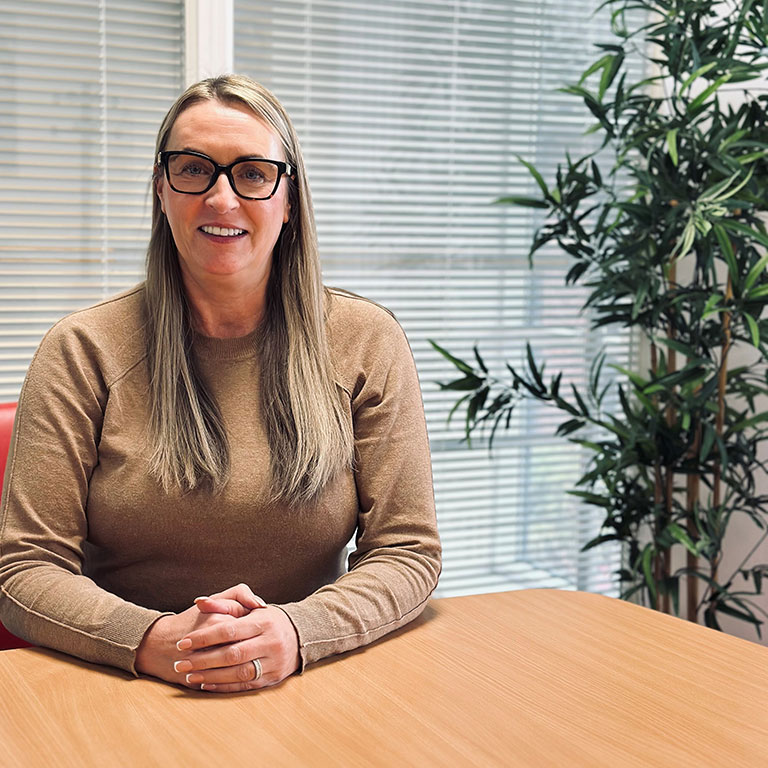Mortgage Repayment Calculator
See how much your monthly payments could be
Understanding what your mortgage could cost each month is an essential part of planning your next move, whether you are buying your first home, moving house or remortgaging. Our quick mortgage repayment calculator gives you a quick, reliable estimate of your potential monthly payments based on the loan amount, mortgage term and interest rate.
How to Use Our Mortgage Repayment Calculator
Our mortgage calculator is simple to use and gives an instant estimate of what your mortgage repayments might look like.
To calculate your monthly payments:
- Select whether you have a capital and interest (repayment) or interest-only mortgage
- Enter the mortgage amount
- Enter your mortgage term (in years)
- Enter your interest rate
- View your estimated monthly repayment.
What the Calculator Can’t Show You
Although our free mortgage repayment calculator is useful for instant estimates, it does not replace personalised financial advice. The tool does not factor in:
- Interest rate changes during your mortgage term
- Lender affordability assessments
- Credit score considerations
- Fees such as product, valuation or legal costs
- Overpayment options or early repayment charges
- Impact of deposits on available rates.
If you would like a clearer picture of your options and which lenders may approve your application, book a free consultation. Our advisers search the whole market to help you secure the most suitable deal.
Your potential monthly repayments
Your monthly repayments will depend on how much you borrow and for how long. To help with this, we’ve created an easy-to-use table.
For example, if you’re wondering what a 100k mortgage monthly payment in the UK would be, you can easily see depending on how long the mortgage term is. So, taking out a 100k mortgage over 25 years may result in £542 monthly payments, assuming a typical fixed interest rate of 4.25%.
Mortgage Cost | 10 years | 15 years | 20 years | 25 years | 30 years |
£100k | £1,025 | £752 | £619 | £542 | £492 |
£110k | £1,127 | £828 | £681 | £596 | £541 |
£120k | £1,229 | £903 | £743 | £650 | £590 |
£130k | £1,332 | £978 | £805 | £704 | £640 |
£140k | £1,434 | £1,053 | £867 | £758 | £689 |
£150k | £1,537 | £1,128 | £929 | £813 | £738 |
£160k | £1,639 | £1,204 | £991 | £867 | £787 |
£170k | £1,741 | £1,279 | £1,053 | £921 | £836 |
£180k | £1,844 | £1,354 | £1,115 | £975 | £885 |
£190k | £1,946 | £1,429 | £1,177 | £1,029 | £935 |
£200k | £2,049 | £1,505 | £1,238 | £1,083 | £984 |
£210k | £2,151 | £1,580 | £1,300 | £1,138 | £1,033 |
£220k | £2,254 | £1,655 | £1,362 | £1,192 | £1,082 |
£230k | £2,356 | £1,730 | £1,424 | £1,246 | £1,131 |
£240k | £2,459 | £1,805 | £1,486 | £1,300 | £1,181 |
£250k | £2,561 | £1,881 | £1,548 | £1,354 | £1,230 |
£260k | £2,663 | £1,956 | £1,610 | £1,409 | £1,279 |
£270k | £2,766 | £2,031 | £1,672 | £1,463 | £1,328 |
£280k | £2,868 | £2,106 | £1,734 | £1,517 | £1,377 |
£290k | £2,971 | £2,182 | £1,796 | £1,571 | £1,427 |
£300k | £3,073 | £2,257 | £1,858 | £1,625 | £1,476 |
£310k | £3,176 | £2,332 | £1,920 | £1,679 | £1,525 |
£320k | £3,278 | £2,407 | £1,982 | £1,734 | £1,574 |
£330k | £3,380 | £2,483 | £2,043 | £1,788 | £1,623 |
£340k | £3,483 | £2,558 | £2,105 | £1,842 | £1,673 |
£350k | £3,585 | £2,633 | £2,167 | £1,896 | £1,722 |
£360k | £3,688 | £2,708 | £2,229 | £1,950 | £1,771 |
£370k | £3,790 | £2,783 | £2,291 | £2,004 | £1,820 |
£380k | £3,893 | £2,586 | £2,353 | £2,059 | £1,869 |
£390k | £3,995 | £2,934 | £2,415 | £2,113 | £1,919 |
£400k | £4,098 | £3,009 | £2,477 | £2,167 | £1,968 |
£410k | £4,200 | £3,084 | £2,539 | £2,221 | £2,017 |
£420k | £4,302 | £3,160 | £2,601 | £2,275 | £2,066 |
£430k | £4,405 | £3,235 | £2,663 | £2,329 | £2,115 |
£440k | £4,507 | £3,310 | £2,725 | £2,384 | £2,165 |
£450k | £4,610 | £3,385 | £2,787 | £2,438 | £2,214 |
£460k | £4,712 | £3,460 | £2,848 | £2,492 | £2,263 |
£470k | £4,815 | £3,536 | £2,910 | £2,546 | £2,312 |
£480k | £4,917 | £3,611 | £2,972 | £2,600 | £2,361 |
£490k | £5,019 | £3,686 | £3,034 | £2,655 | £2,411 |
£500k | £5,122 | £3,761 | £3,096 | £2,709 | £2,460 |
To adjust the amount, term or interest rate to your exact specifications, use our quick mortgage repayment calculator.
What Affects Your Mortgage Repayments?
Understanding how lenders calculate repayments helps you plan ahead and compare deals confidently.
Interest Rates
Interest rates have a major impact on your monthly payments and are influenced by various factors, including the economy, market trends, your credit score, and the length of your mortgage.
There are two main types of interest rates:
- Fixed rates – these stay the same for the entire loan term, giving you predictability and peace of mind.
- Variable rates – these can change with the market, which means your payments could go up or down.
Mortgage Length
Longer mortgage terms usually mean lower monthly payments but more interest paid overall. Shorter terms increase monthly costs but reduce the total interest paid. Some lenders may also restrict the maximum mortgage term due to age or retirement plans.
Deposit Size
The deposit amount depends on a few factors, like your lender’s requirements and the mortgage type. A larger deposit lowers your loan-to-value (LTV) ratio. This can unlock better deals and reduce monthly payments. Even increasing your deposit slightly may allow you to access more favourable interest rates.
Affordable Housing Schemes
There are a number of affordable home ownership schemes available in the UK, including:
- First Homes Scheme – allows eligible first-time buyers in England to buy a home for 30% to 50% less than its market value.
- Shared Ownership – a UK wide scheme that allows eligible individuals to buy a share of a property and pay rent to a landlord on the rest.
- Rent to Buy – a lower rent payment scheme to help tenants in England (apart from London) save for deposit to buy a home by offering discounted properties.
- Help to Buy – available only in Wales, this is a shared equity loan designed for first-time home buyers and movers who have a 5% deposit.
- Self-Build Loan – a loan available in Scotland and Wales to help with the cost of building your own home.
Speak to Our Mortgage Experts Today
Understanding your potential repayments is a great first step, but personalised advice can make all the difference when choosing the right mortgage. At Ascot Mortgages, our experienced advisers search the whole market to find the most suitable deals based on your budget, goals and financial circumstances.
Whether you’re buying your first home, moving, remortgaging or exploring buy to let options, we’re here to help you make confident, informed decisions. Get started today.
FAQs
You can usually borrow around 4 to 5 times your salary. Some lenders offer up to 6 times your salary, but they will be very strict about who they lend this amount to. A lender’s income multiple can depend on:
- salary and source of income
- use of government homeownership schemes
- deposit size
- financial commitments and bills
- age
- length of mortgage
- leasehold costs.
Mortgage monthly payment calculators are an excellent way of finding out how much you might be able to borrow. Each mortgage repayments calculator is different, but basic online mortgage calculators will usually look at:
- how many people are paying the mortgage
- salaries
- secondary income
- mortgage type
- mortgage length
- interest rate
Most mortgage calculators do not look at:
- monthly expenses
- credit score
- costs of getting a mortgage
- interest rate changes
- life changes such as losing your job
Unlike calculators, most lenders look at every issue that could affect your repayments. You might also need to pass a lender’s ‘stress test’ before they’ll give you a mortgage. This is to make sure you’ll be able to pay your mortgage if something happens that affects your repayments.
This could include:
- losing your job
- having a baby
- being ill
- a change in interest rates
To pass the stress test, lenders will look at your salary and other types of income such as pensions and investments. Lenders also look at your credit history to see what type of borrower you are. This is called a credit check. It could be a hard or soft credit check, depending on their rules.
Even if a lender thinks you can afford the full amount they’re offering, you should decide how much is right for you. While a lender must consider a range of risk-based factors, such as a rise in interest rates or potential loss of employment, when offering you a mortgage, it is up to you whether you borrow the full amount offered.
Some people do borrow as much as they can in order to get their dream property. Others, on the other hand, may prefer to borrow less and take on less risk. This is ultimately down to personal preferences and attitudes to risk.
Think about what’s best for you. Remember, you might lose your home if you do not keep paying your mortgage.
According to our data, most people who get a mortgage to buy a property borrow between 2 and 4 times their income. Generally, the average loan-to-income (LTI) ratio is higher in the south of the country where houses are more expensive.
Even if you’ve got a poor credit score now, the amount you can borrow still depends on your personal situation. A lender looks at your credit history to see how well you’ve managed debt before. This is known as a credit check.
If you have bad credit history some lenders may:
- turn you down for a mortgage
- ask for a bigger deposit
- offer you a higher interest rate
Whether your credit history will affect your mortgage application depends on:
- what the credit problem is
- the amount
- when it happened
Missing a mortgage payment or going bankrupt are two scenarios that can stay on your credit report for six years. Missing payment on a loan is clearly more serious than missing a utility bill payment, for example, and as such can harm your credit score more severely.
It may be helpful to explain to a lender how you got into debt. For example, if your finances are normally well-managed, but your debt is a result of a life event such as divorce, a lender might not view your debt as seriously.
You should always speak to a mortgage broker to find out how your situation could affect how much mortgage you can borrow.
It is possible to get a mortgage with no deposit. However, most lenders require a deposit of at least 5% of the purchase price. 100% mortgages are usually linked to a relative’s or friend’s savings account.
Lenders who offer 100% mortgages include:
- Barclays
- Lloyds
- Tipton & Coseley Building Society
- Skipton Building Society
With Lloyds’ Lend a Hand Mortgage, instead of putting down a deposit, a family member puts 10% of the purchase price into a 3-year fixed-term savings account. At the end of the 3 years, your family member will get their savings back with interest if you made all your payments. The home is still yours. Your family member has no legal rights to it.
The monthly cost of a 150k mortgage depends on several factors, including the interest rate, mortgage type and the length of the term. For example, a 150k mortgage over 30 years may cost around £738 per month, based on a 4.25% interest rate. Shorter terms usually increase the monthly payments but reduce the total interest paid over the life of the loan.
For a personalised breakdown based on your exact circumstances, try our home loan calculator or take a look at our monthly repayment table, which ranges from 100k mortgages to 500k mortgages and a term of five to 30 years.
Mortgage payment calculators are perfect for anyone dreaming of buying a home or even considering refinancing an existing mortgage. Whether you’re a first-time buyer, a seasoned homeowner thinking of upgrading, or a real estate investor looking at your next opportunity, these quick mortgage calculators can guide you in making confident, well-informed decisions.
Meet Our Team







Got A Question?
Get things moving, apply for a remortgage.
Call Now - 01925 711 558
Free unbiased mortgage advice is just a phone call away.
Contact Us
Contact us for more information about our mortgage services.
Legal
Ascot Mortgages authorised and regulated by the Financial Conduct Authority and can be found on the FCA register (www.fca.org.uk) under reference 776062. The FCA do not regulate some forms of mortgages. The guidance and advice contained in this website is subject to UK regulatory regime and is therefore restricted to consumers based in the UK. There may be a fee for mortgage advice. The precise amount will depend upon your circumstances but we estimate it will be £599 per mortgage account. Ascot Mortgages Ltd give you the option to pay a non-refundable fee of £1299 payable with the application. If this option is taken, Ascot Mortgages Ltd will refund any procuration fee received by the lender.
Ascot Mortgages Limited is registered in England and Wales and have their registered office at 8 Webster Court, Westbrook, Warrington, WA5 8WD. The company’s registration number is 06764971.
We are a credit broker, not a lender. We work with the whole of the lending market. Typically; we will receive commission that will vary depending on the lender, product, or other permissible factors. The nature any commissions model will be confirmed to you before you proceed.
ICO Registration number is Z1842187
YOUR PROPERTY MAY BE REPOSSESSED IF YOU DO NOT KEEP UP REPAYMENTS ON A MORTGAGE OR ANY DEBT SECURED ON ITtypically; we will receive commission
©2025 AscotMortgages.co.uk – All Rights Reserved




